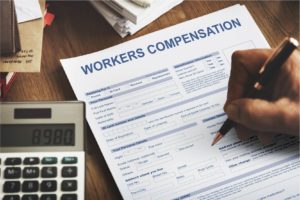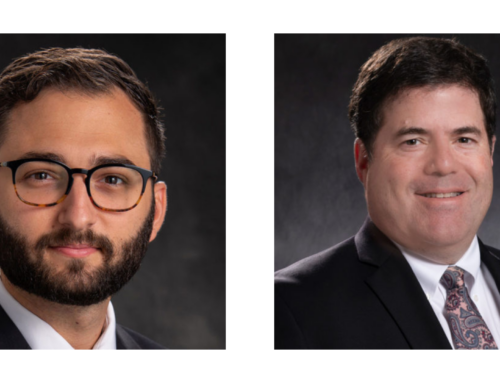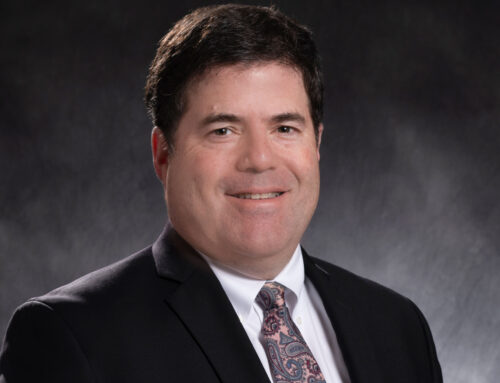By: Michael Brottman
On March 16, 2020, Governor Murphy signed Executive Order 104, which implemented aggressive social distancing measures to mitigate the spread of COVID-19 in New Jersey. Businesses or institutions deemed essential were excluded from Executive Order 104 and were permitted to continue operating. Since that time employees of grocery stores, pharmacies, gas stations and healthcare facilities have continued working, oftentimes under increasingly stressful circumstances. It is quite certain that these workers are being exposed to the novel coronavirus through the course of their employment and some will, inevitably, contract COVID-19. Will these workers be able to obtain workers compensation benefits if they do?
By way of background, the New Jersey Workers’ Compensation Act (hereinafter “the Act”), was passed in 1911. At its inception it provided no coverage for occupational diseases until it was amended in 1924, when nine specific diseases were acknowledged as being compensable if contracted through employment: anthrax, lead poisoning, mercury poisoning, arsenic poisoning, phosphorus poisoning, poisoning from all homologues and derivatives of benzene, wood alcohol poisoning, chrome poisoning, and caisson disease. In 1949 the Act was amended again, expanding its coverage to compensate workers for other health problems that were caused or exacerbated as a result of their work. Since that time, N.J.S.A. 34:15-31, entitled “Compensable Occupational Disease” defined, has provided medical and monetary benefits to thousands of workers who suffer health problems as a result of the work that they do.
The Act defines “compensable occupational disease” as any disease arising out of and in the course of employment, which are due in a material degree to causes and conditions which are or were characteristic of or peculiar to a particular trade, occupation, process or place of employment. This definition expressly excludes injuries resulting from the natural aging process.
In Lindquist v. City of Jersey City Fire Dep’t, 175 N.J. 244 (2003), the Supreme Court of New Jersey interpreted this legislative history as suggesting that either “the occupational disease risks of the workplace are too numerous to list separately, or that in the future employees may contract occupational diseases, as yet unknown, that should nonetheless be compensated under the terms of the Act.” Lindquist, supra, 175 N.J. at 257. This language would seem to indicate that a worker who contracts COVID-19 through their employment would be entitled to receive any applicable benefits provided by the New Jersey Workers Compensation Act. Like many things in the law however, one size does not fit all. You have to look beneath the surface to determine how the law should be applied given the specific facts of your case.
In Bird v. Somerset Hills Country Club, 309 N.J. Super. 517 (App. Div. 1998), the Appellate Division affirmed the decision of a judge of compensation who found that Mr. Bird proved that he contracted Lyme Disease through the course of his employment. Beginning in 1989, Mr. Bird began working for Somerset Hills Country Club as a groundskeeper. He worked, year-round, in “a relatively undeveloped setting that is home to many types of wildlife such as woodchucks, squirrels, deer, ducks, geese, chipmunks, birds and other animals”.
Approximately two years later, Mr. Bird began experiencing extreme fatigue for which he sought medical care. In 1992, Mr. Bird was diagnosed with Lyme disease. Thereafter, he filed a formal claim petition with the New Jersey Division of Workers Compensation which was contested by his employer. Mr. Bird’s doctors opined that he had probably contracted the disease on the job. His work often took him to the “rough”, or the edge of the woods, where infected tick larvae are often found. Given that he spent about 40 hours a week outdoors at his workplace year-round, compared with only a few hours at home gardening, the judge of compensation ruled in Mr. Bird’s favor. Nonetheless, Somerset Hills Country Club appealed the judge’s decision.
Somerset Hills argued that Mr. Bird did not prove he contracted Lyme disease through the course of his employment. Although the doctors who testified disagreed as to whether Mr. Bird contracted Lyme disease from his work, the Appellate Division ultimately agreed with the trial judge who found that it was indeed, more likely than not Mr. Bird had contracted Lyme disease as a result of his work.
Fortunately, the New Jersey Workers Compensation Act does not require a worker to prove absolute certainty that he or she contracted the disease at work. The injured worker’s burden of proof in an occupational disease claim is to establish each element of the claim by a preponderance of the evidence. In other words, the injured worker need only show that it is more likely than not the occupational disease was contracted from work rather than somewhere else.
Employees who file workers compensation claims alleging that they contracted COVID-19 through their employment will likely face the same argument made by Somerset Hills in the Bird case: You can’t prove that you contracted COVID-19 through your employment, you could’ve gotten it anywhere. While this argument may possess a certain logical appeal, New Jersey’s legislature has taken important steps to safeguard those employees most likely to have been exposed to COVID-19 at work.
On July 8, 2019, Governor Murphy signed the Thomas P. Canzanella Twenty First Century First Responders Protection Act. N.J.S.A. 34:15-31.2, et seq. This Act was introduced in response to the significant number of public safety workers who reported illness after responding to the terrorist attacks of September 11, 2001 and the terrorists’ use of Anthrax shortly thereafter. The Canzanella Act states:
“It is therefore an appropriate public policy to modernize the workers’ compensation system in this State to ensure the meeting of the critical needs of public safety workers who are New Jersey’s first line of defense in the event of catastrophic emergencies, epidemics and terrorist attacks, and assure that those workers are not denied a level of support which is commensurate to the sacrifices they and their families make for the safety and wellbeing of the citizens of this State and the nation.”
The Canzanella Act creates a presumption of compensability for public safety workers who contract a serious communicable disease after being exposed through the course of their employment. In typical worker’s compensation cases, an injured worker has the burden of proving that he or she has been diagnosed with the occupational disease and it is more likely than not that the occupational disease was contracted at work. The presumption created by the Canzanella Act assumes that the public safety worker contracted the disease at work and shifts the burden of proof to the employer to prove that the public safety worker contracted the disease somewhere else before that public safety worker can be denied compensation.
Public safety workers covered by the Canzanella Act include: Firefighters and Police officers, paid or volunteer; Community Emergency Response Workers employed by the New Jersey Office of Emergency Management; Employees of a Correctional facility; basic or advanced medical technicians working for a first aid or rescue squad; or any other nurse, basic or advanced medical technician responding to a catastrophic incident and directly involved and in contact with the public during such an incident, either as a volunteer, member of a Community Emergency Response Team, or employed or directed by a health care facility. This change to the New Jersey Workers Compensation Act arrived just in time for public safety workers who are risking their lives and the lives of their loved ones when they go to work every day and risk contracting COVID-19.
An injured worker who contracts COVID-19 through their employment may still be entitled to receive workers compensation even if their job title is not one expressly listed in the Canzanella Act. One will have to establish that it is more likely than not they contracted COVID-19 through the course of their employment. Hospital workers such as housekeeping or janitorial staff, security or information officers, and other clerical staff are still being exposed to the virus even though they may not be directly involved in patient care.
Anyone seeking to file a workers compensation claim for COVID-19 should speak with an attorney whose practice is focused on representing injured workers in New Jersey Workers Compensation Courts. No infected worker should ever assume they cannot prove their case until they seek advice from an attorney. The facts of each case are different. Attorneys are trained to identify the specific facts and other aspects of a claim that can make or break a case. If you or someone you know has tested positive, or thinks they may have contracted the virus through the course of their employment, contact a worker’s compensation attorney to protect your rights. Most attorneys who represent injured workers offer free consultations. Take the time to ask questions and please stay safe.
Michael D. Brottman is a workers compensation attorney and partner in the Lawrenceville, NJ law firm of Szaferman, Lakind. He can be reached at 609-275-0400 or via email at mbrottman@szaferman.com.
For more COVID-19 related resources and articles visit our COVID-19 Resource Center.
The foregoing is intended for general information purposes and is no substitute for specific legal advice.






